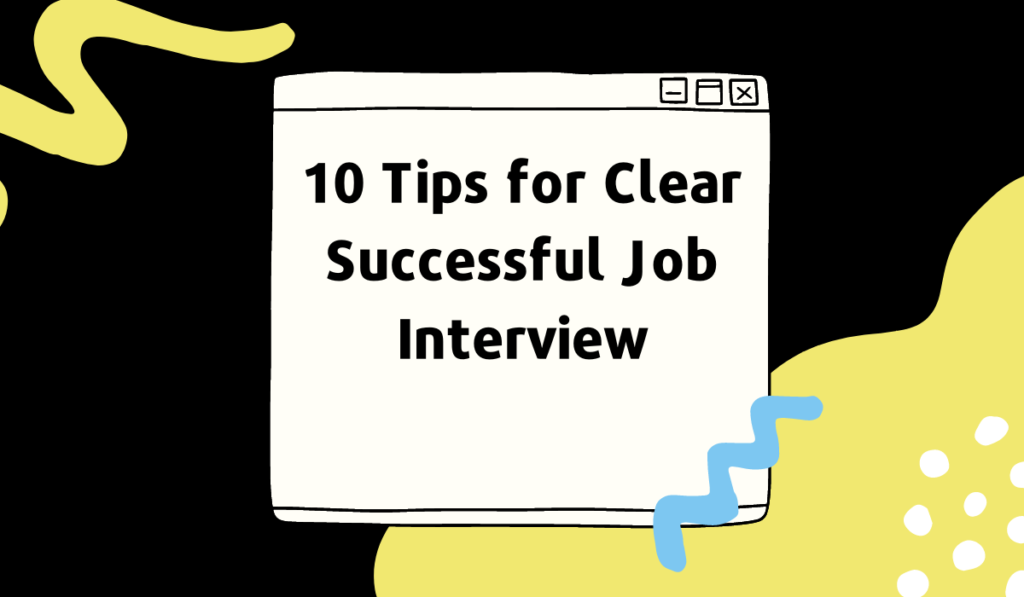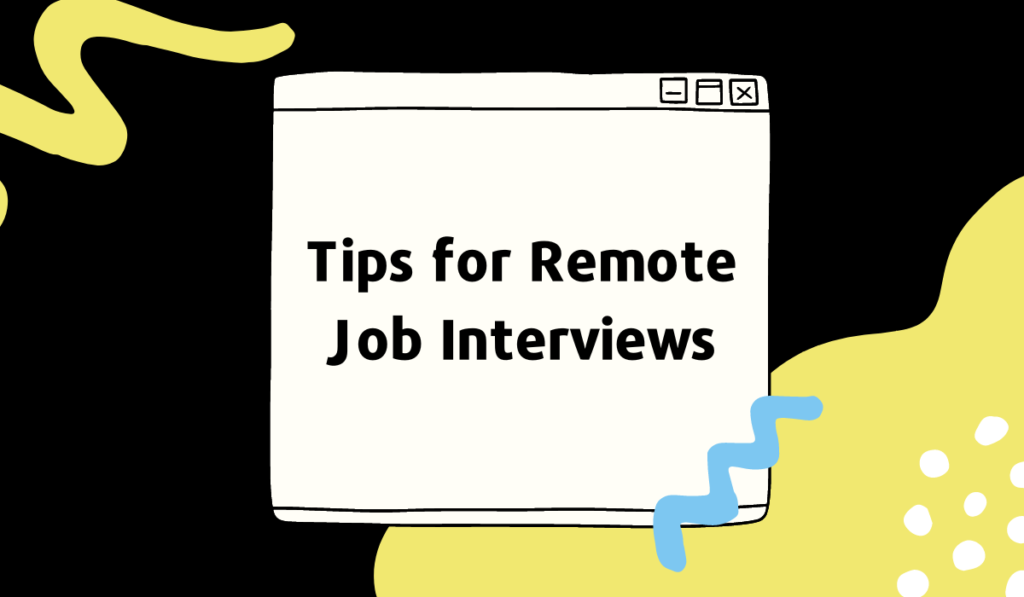Contents
Check here best 8 tips How to crack interview in first attempt. Interview Tips for freshers:-
1. Know Yourself:

Know yourself is the cornerstone of a successful interview. It goes beyond the surface-level knowledge and requires a profound insight into your strengths, weaknesses, values, and goals. Here’s is some Important topics that should be help you to crack Interview:
(I). Identify Your Strengths:
if you want crack Interview in first attempt, List not only professional skills but personal strengths also.
Example: Instead of just saying “good communication,” specify instances where your communication made a positive impact. this point help you to crack interview.
(II). Acknowledge Your Weaknesses:
At the time interview Don’t Use Just weaknesses name, discuss how you’re working to improve them.
Example: If time management is a weakness, talk about strategies you’re implementing to enhance it. if you put your weakness properly then this point help you to crack interview.
(III). Understand Your Values:
Reflect on what truly matters to you in a work environment.
Example: If teamwork is a core value, provide examples of how you’ve contributed effectively to a team in the past.
(IV). Clarify Your Goals:
Outline short-term and long-term career objectives. This is help to you for Crack Interview
Example: Instead of a generic goal like “career growth,” specify the role or skills you aspire to attain in the next five years.
(V). Highlight Unique Qualities:
Identify what sets you apart from others.
Example: If creativity is a strong suit, narrate a situation where your creative approach led to a successful outcome. this point help you to crack interview.
2. Dressing Smartly:

if you want crack interview in first attempt. Dressing smartly isn’t just about following a dress code; it’s a strategic move to make a positive first impression. Whether you’re heading for a job interview, a business meeting, or a networking event, your attire speaks volumes. Let’s delve into the nuances of dressing smart:
(I). Understanding the Occasion:
Job Interview: Research the company culture. opt for formal attire for corporate settings, while creative industries may appreciate a slightly more relaxed approach.
Networking Event: Blend in with the industry norm but add a personal touch to stand out.
(II). Grooming properly :
Hair and Nails: Check your hair is grooming properly. Nails should be clean and trimmed. well grooming is the key of crack any interview.
Personal Hygiene: Fresh breath and minimal use of fragrance are crucial. this point help you to crack interview.
(III). Comfort and Confidence:
Well-Fitted Clothes: Well fitted clothes can make you uncomfortable and impact your confidence.
Posture: Stand tall and maintain good posture. Confidence is as much about how you carry yourself as it is about what you wear.
(IV). Attention to Detail:
Accessories: Subtle accessories like a watch, tie clip, or a professional bag can add a polished touch.
Ironed Clothes: Wrinkled attire can convey a lack of attention to detail.
3. Clear Speech:

The ability to talk clearly is a fundamental skill that goes beyond just uttering words. It encompasses articulation, tone, and the overall delivery of your message. Whether you’re in a professional setting, engaging with friends, or speaking in public, effective communication is key. Let’s explore the facets of talking clearly:
(I). Clarity of Speech:
Pronunciation: Express your words clearly. Regularly practice the pronunciation of challenging words. To increase clarity in your speech.
voice Rhythm: Check how’s your voice sounds, use high and low tones to keep from sounding boring.
(II) Non-Verbal Cues:
Body Language: Your body language should complement your words. Maintain eye contact, use gestures appropriately, and avoid closed-off postures.
Facial Expressions: Expressions convey a lot. Ensure your facial expressions align with the message you’re conveying.
(III). Effective Listening:
Active Engagement: Engage in the conversation actively. Listen to understand, not just to respond.
Clarifying Questions: If something is unclear, don’t hesitate to ask clarifying questions. It shows your commitment to understanding.
(IV). Positive Language:
Avoiding Negativity: Frame your sentences positively. Instead of saying what you can’t do, focus on what you can achieve.
Encouraging Words: Use encouraging words to motivate and inspire others.
4. Do Your Homework:
Do Your Homework before an interview is a crucial step that involves researching and preparing to enhance your performance. Here’s a detailed explanation:
Google the company before the interview: Before the interview, take time to gather information about the company, its culture, and the role you’re applying for. Basic research on the company’s website, recent news, and social media pages can provide valuable insights.
Mention some cool fact about the company: Understand the company’s mission, values, and recent achievements. Mentioning specific details during the interview shows your genuine interest and dedication to the position.
5. Be Punctual:

Don’t be late: Arriving on time for your interview is a basic but crucial element of professionalism. Plan your schedule in advance, consider potential delays, and aim to reach the interview venue a little earlier than the scheduled time.
Arrive 10-15 minutes early – it shows you’re serious.
6. Body Language Matters:
Body language is a crucial aspect of communication, especially in an interview setting. Maintain good posture, make eye contact, and offer a firm handshake. These simple gestures convey confidence and attentiveness.
7. Smart Answer:
Answering questions intelligently is a key component of a successful job interview. The STAR method is a helpful framework to structure your responses. Here’s how it works:
Situation: Describe the context or situation you were in.
Task: Explain the task or challenge you needed to address.
Action: Detail the actions you took to address the task.
Result: Summarize the outcomes or results of your actions.
8. Ask Questions:
Don’t be shy to ask questions. It shows you’re genuinely interested.
Conclusion
Cracking an interview, especially for freshers, requires a strategic approach and effective HR interview tips. Navigating through the intricacies of the interview process can be challenging, but with the right guidance, success is within reach. For those exploring opportunities in multinational companies (MNCs), understanding specific strategies on how to crack interviews in such corporate settings becomes essential. It’s not just about showcasing knowledge; interview tips for freshers emphasize the significance of confidence, communication skills, and a positive attitude. Exploring resources like interview tips on FreshersWorld and relevant papers can provide valuable insights into the latest trends and expectations. Remarkably, even for those wondering how to crack an interview without extensive knowledge, emphasizing transferable skills, a willingness to learn, and showcasing a problem-solving attitude can make a substantial impact. In essence, combining industry-specific knowledge with broader interview tips ensures a well-rounded approach to not just crack interviews but to leave a lasting impression on potential employers.
frequently asked questions
Start by thoroughly researching the company, understanding the job requirements, and practicing common interview questions. Highlight your skills and experiences that align with the job description. Additionally, gather insights about the company culture and values to tailor your responses accordingly.
Dress professionally in attire that is appropriate for the industry. Choose conservative and well-fitted clothing that reflects your understanding of the company culture. It's better to be slightly overdressed than underdressed.
Nervousness is natural, but preparation can help alleviate anxiety. Practice answering common questions with a friend or in front of a mirror. Take deep breaths, maintain good posture, and focus on the interviewer's questions to stay present and composed.
Send a thank-you email within 24 hours expressing your gratitude for the opportunity and reiterating your interest in the position. Use this opportunity to briefly mention a key point from the interview or emphasize how your skills align with the company's needs.
Focus on transferable skills gained through education, volunteer work, or extracurricular activities. Highlight projects, coursework, or any relevant experiences that demonstrate your ability to succeed in the position. Emphasize your eagerness to learn and contribute to the organization.
Prepare questions that demonstrate your genuine interest in the company and the role. Inquire about the company culture, team dynamics, and opportunities for professional development. Avoid asking questions that can be easily answered through basic research.
Be honest and transparent about any employment gaps. Briefly explain the reason for the gap and use the opportunity to highlight any relevant skills or experiences gained during that time. Focus on the positive aspects and your readiness to re-enter the workforce.
It's okay not to know the answer to every question. Instead of guessing, admit that you're not familiar with that particular aspect but express your willingness to learn. Use the opportunity to discuss how you approach learning new concepts and solving challenges.

